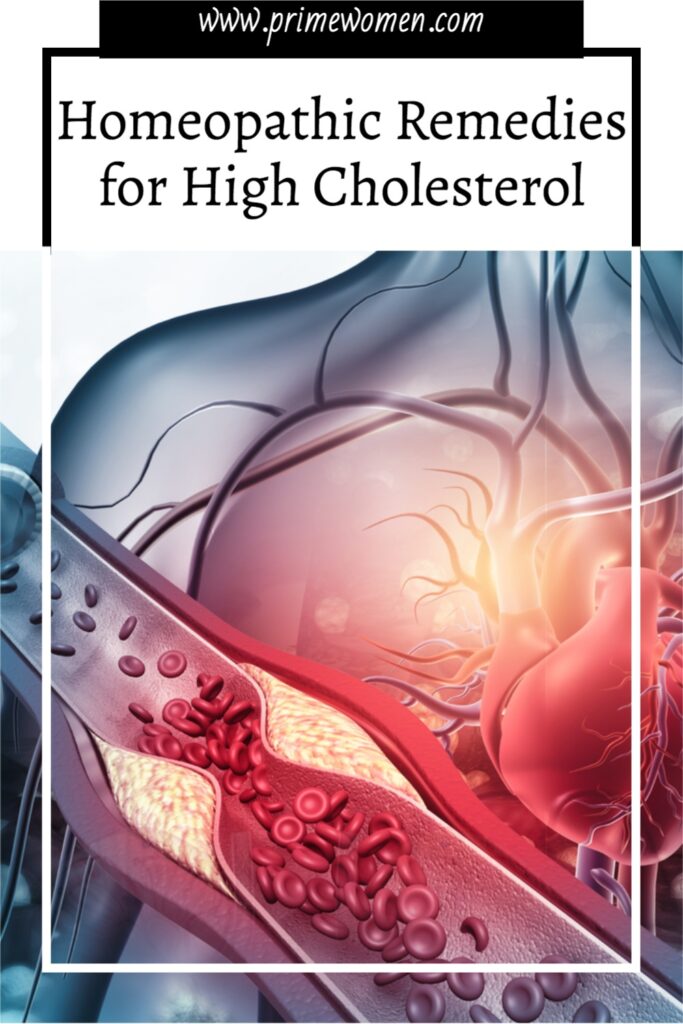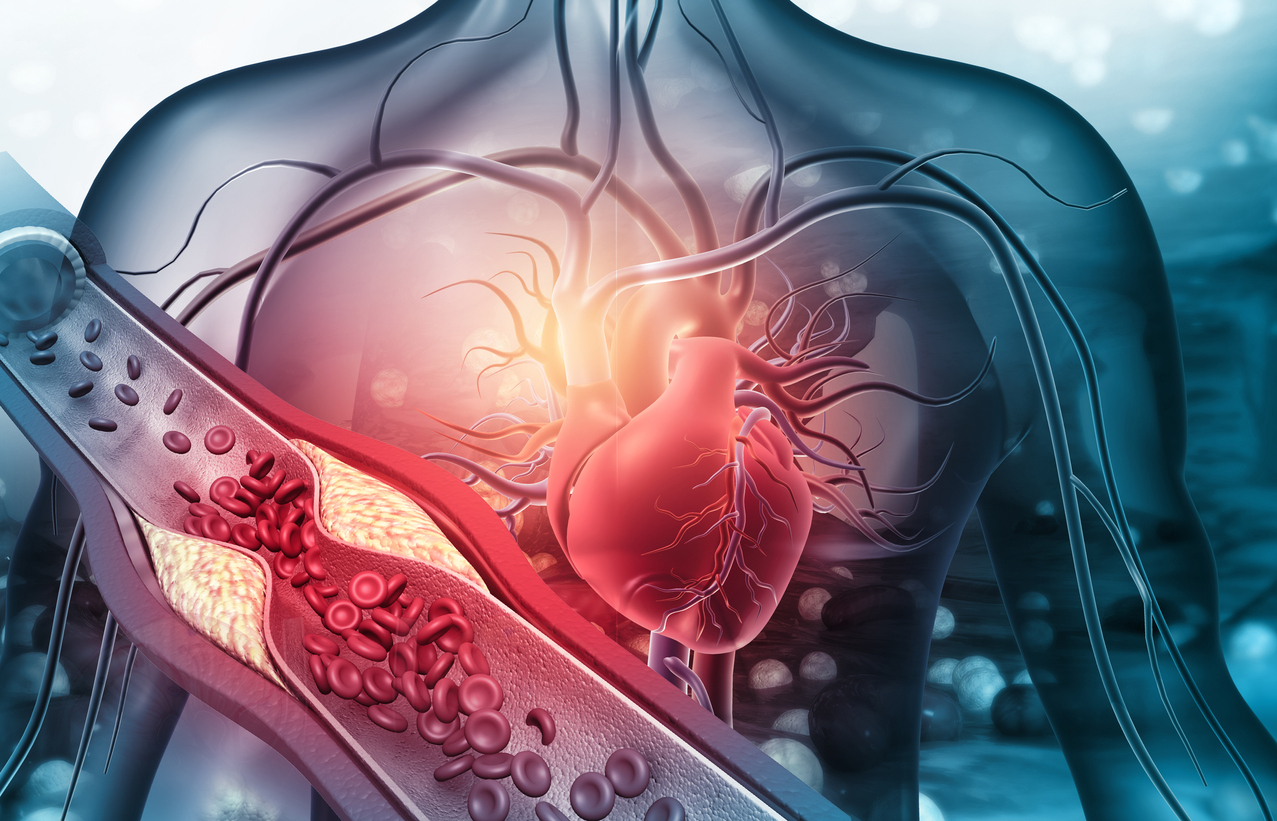Cholesterol is a fatty substance produced by the liver and is present in effectively every cell of our bodies. It is essential in maintaining vital functions such as hormone and vitamin D production, fighting infection, building immunity, bone formation, and brain development. While there are different types of cholesterol, having too much unhealthy or LDL cholesterol can cause a wealth of health issues. There are a number of medications that can lower your cholesterol levels, but there are also many natural remedies for high cholesterol, and it’s worth exploring if any of them are right for you.
Cholesterol – The Good, The Bad, and The Ugly
Cholesterol circulates in the blood in combination with certain proteins to make lipoprotein. There are various types of lipoproteins that make up our cholesterol:
- High-density lipoprotein, also known as HDL or ‘good’ cholesterol
- Low-density lipoprotein, also known as LDL or ‘bad’ cholesterol
- Very low-density lipoprotein, also known as VLDL
Too much LDL in the bloodstream, or more than the body needs, causes a build-up of fat in the arteries, so it is critical to keep cholesterol in check.
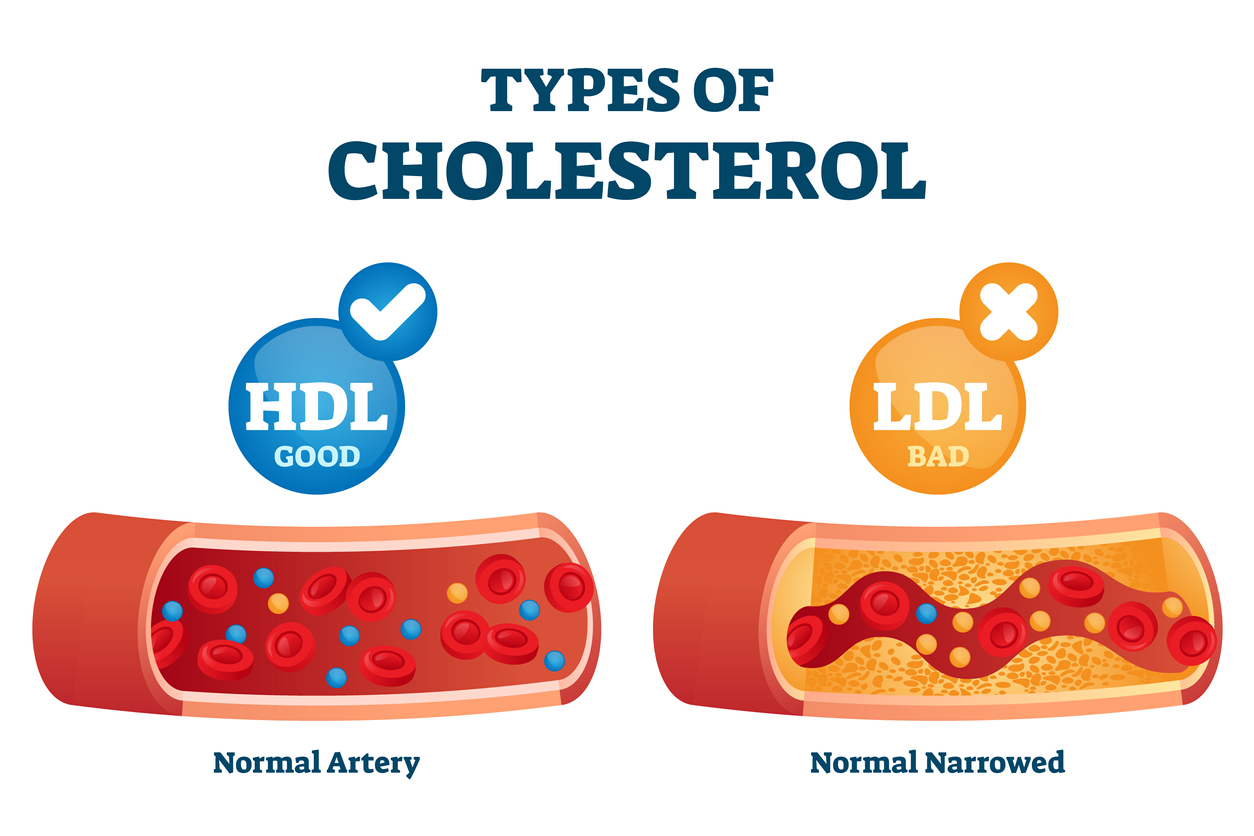
Triglycerides are also a related factor. These are fats (lipids) that are present in the body, along with cholesterol. They are generally the result of excess calories, which are unused by the body, stored in fat cells, and then later released to provide energy between meals. But high triglycerides can result from regularly eating more calories than you burn and can lead to heart disease. So triglyceride levels are frequently checked along with cholesterol by the medical community.
Cholesterol and Women
As women, we should be aware that changing estrogen levels can increase LDLs. Making sure that we keep LDLs low can have many positive effects, including inhibiting plaque formation, decreasing blood pressure, detoxifying the body, and enhancing immunity. The method for checking cholesterol level is a blood test called a lipid profile or lipid panel. Most people don’t know that their cholesterol is high because symptoms are typically less severe until it leads to serious diseases such as heart attack, stroke, or chronic kidney disease. Therefore, it’s imperative to get your cholesterol levels checked at least every five years.
Your total cholesterol levels should be less than 200 milligrams per deciliter (mg/dl), and LDLs should be less than 100 mg/dl.
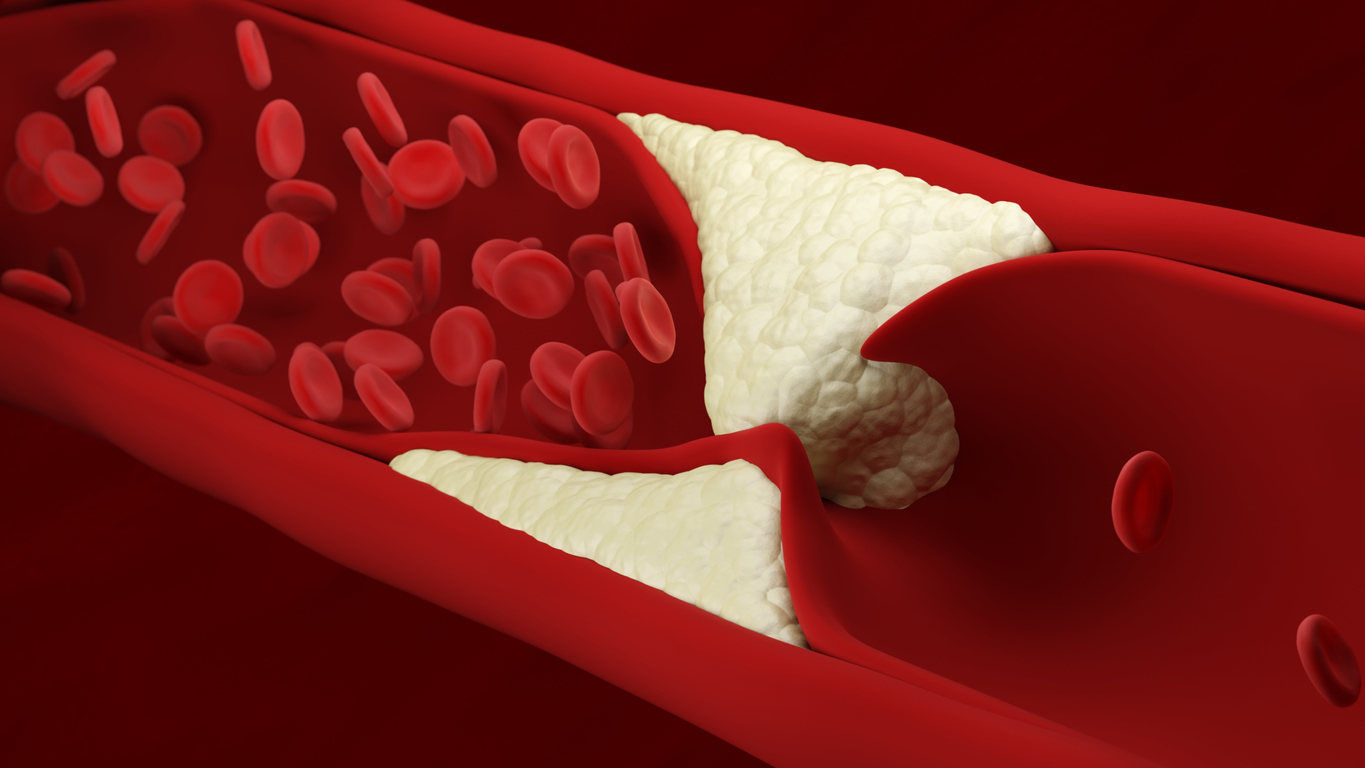
Natural Remedies for High Cholesterol
Most cholesterol is produced by the body rather than obtained from food. That said, a healthy diet, regular exercise, good sleep, weight control, proper hydration, not smoking, drinking in moderation, and reducing stress are all important elements to maintaining a healthy cholesterol level.
The best diet to support a healthy cholesterol level includes a few essential actions:
- Reduce saturated fats, which are found primarily in red meat and full-fat dairy products like cheese and butter.
- Eliminate trans fats, which come from pastries, cookies, cakes, some margarine, fried foods, biscuits, microwave popcorn, and frozen pizza.
- Consume more mono-saturated fats from foods such as nuts, avocado, vegetable oils made from olives, soy, or sunflower seeds. Canola oil is also a ‘good’ fat.
- Eat foods rich in omega-3 fatty acids found in walnuts and cold-water fish such as salmon, tuna, halibut, herring, and mackerel.
- Increase soluble fiber from foods such as fruits, vegetables, whole grains like oats or beans.
- Using garlic in food preparation.
A healthy diet can influence cholesterol levels along with the other positive health factors mentioned above. Some scientific studies show that homeopathic treatments can decrease bad cholesterol, but these studies are few in number, and reasonably limited, so more studies are needed to be more definitive. But the really good news for natural, homeopathic remedies is that they are safe with no side effects when taken in the proper dosage.
However, regardless of your best efforts, if your levels are too high on a sustained basis, your physician may prescribe medicine to bring it down.
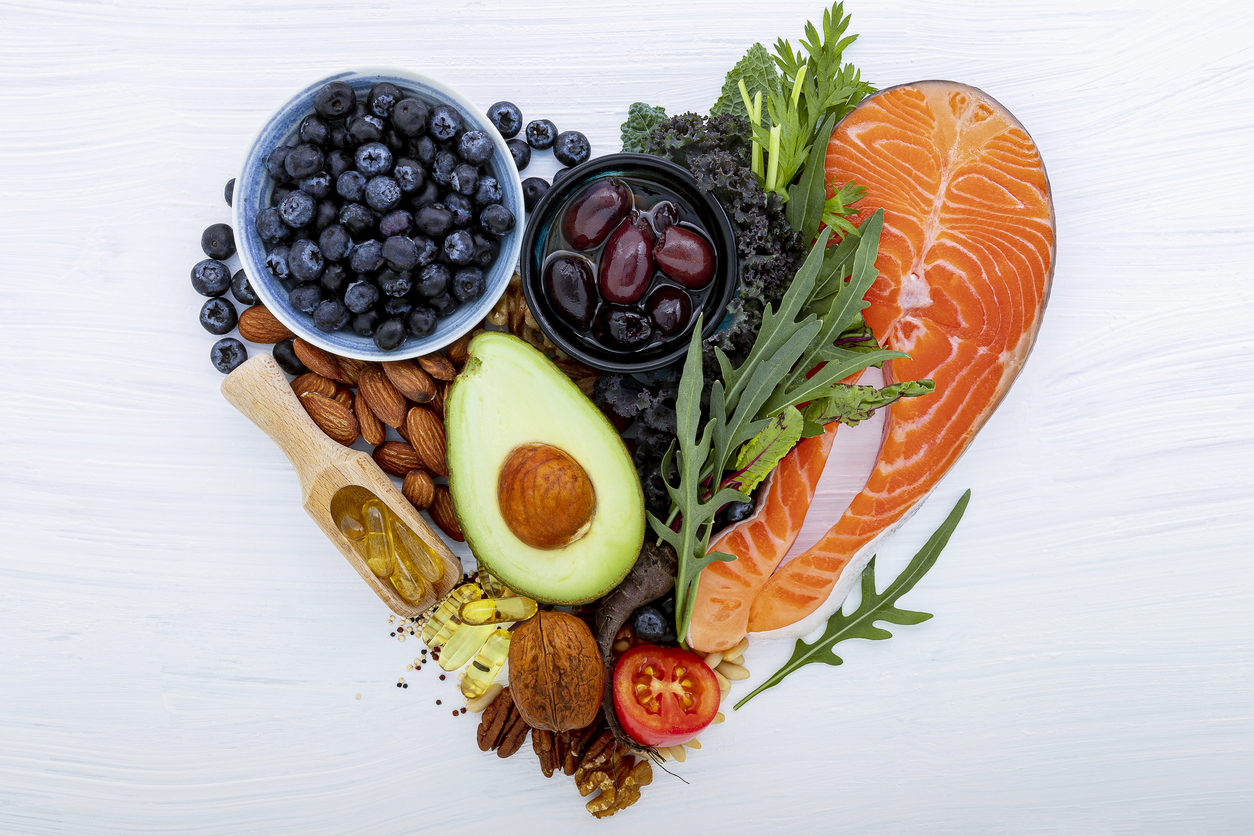
Homeopathic Treatments
Here are seven recommended natural treatments in addition to three food-related recommendations that can help keep bad cholesterol in check and are ideal natural remedies for high cholesterol.
1. Cholesterinum (cholesterine)
Cholesterinum reacts well, even in low potencies, to control cholesterol, especially when high cholesterol is combined with liver dysfunction. Usually found as Cholesterinum 3X (3 titrations), adults should generally take 4-6 pellets three times per day.
2. Curcuma longa (turmeric)
Commonly used in food preparation, the compound curcumin provides a significant anti-atherosclerotic function, so it protects the arterial walls from both narrowing and hardening. It can be taken in the mother tincture form or in low potency if the mother tincture is not available. However, it is not intended for long-term use, i.e., more than three months. The dosage recommendation is 700 mg turmeric extract twice a day.
3. Niacin (Vitamin B3)
Niacin (vitamin B3) has been found to decrease LDL and triglycerides as well as increase HDL or good cholesterol. Still, it can affect the impact of hypertension medicines, so take only if advised by your doctor. The recommended daily amount is 14 mg.
4. Psyllium
Fiber made from the seed husks of the Plantago ovata plant constitutes psyllium. It is available in pill form or as a mix to add to food or drinks. In addition to reducing cholesterol, it can lower blood sugar for people with diabetes and relieve constipation. The recommended daily dose is 9-10 grams. Metamucil is a commonly known brand, but there are many alternatives on the market.
5. Phytosterols (plant sterols)
Plant sterols and stanol esters are compounds found in small amounts in foods such as whole grains, some vegetables, fruits, and vegetable oils. These lower LDL primarily by interfering with the amount of cholesterol absorbed by the intestine. Phytosterols can be found in some margarine spreads, salad dressings, and dietary supplements. A daily dosage of 1-2 grams is recommended.
6. Guggulipid
Guggulipid is the gum resin of the Mukul myrrh tree used in ayurvedic medicine in India for more than 2000 years. Some clinical studies indicate guggulipid lowers LDL though more rigorous studies are needed to ensure scientific validity. A daily dose of 550 mg is recommended.
7. Whey protein
A milk-based protein from dairy products, whey protein is typically taken in powder form, and studies suggest it lowers LDL and total cholesterol. Find a supplement that lists only whey protein among the ingredients in order to avoid things like added sugar. Recommended daily dosage is .26 grams per pound of body weight, i.e., 33 grams for a woman weighing 125 pounds.
There are many other possible homeopathic options you may hear about though these have less research to show effectiveness. Other options include allium sativum, crataegus oxyacantha, Chelidonium, phosphorus, barium chloride, carbonate of barium, jambul seeds, club moss, carbonate of lime, guatteria gaumeri, sea kelp, nux vomica, Psorinum, uranium nitric, adonis Vernalis, Rosmarinus Officinalis, or policosanol.
Food-related remedies:
1. Fish oil
High in omega-3 fatty acids, fish oil can slow the rate at which the liver produces triglycerides. It also has an anti-inflammatory impact on the body, decreasing plaque growth in the arteries and aids in thinning the blood. Be sure to consult with your doctor before taking fish oil, especially if you are taking blood-thinning medication. Approximately 1000 mg of fish oil is the proper daily dosage.
2. Soy
Soy proteins or soybeans are an excellent substitute for other proteins and can lower LDL cholesterol. Foods such as edamame, tofu, tempeh, soy milk, soy yogurt, and soy nuts are good sources. The recommended dose is generally 25-50 grams of soy protein daily.
3. Flaxseed
Flax is a blue flower grown in temperate climates. Both seeds and oil derived from the flower are good sources of omega-3 fatty acids. To get the most from flax, use it in oil form or grind the flax seeds as our bodies can’t break down the shiny outer shell of the seed. A daily dose of 20 grams (2 tablespoons) of flaxseed is recommended.
While avoiding high cholesterol through a healthy lifestyle is preferable, you should consider using the natural remedies above if your cholesterol levels are higher than recommended. Always consult with your doctor if you have concerns about your cholesterol or any other health issues, and see if they have any recommendations for natural remedies for high cholesterol.
Read Next:
Cholesterol-Lowering Foods You Should Start Eating Today
Stress Test Vs. Echocardiogram: Understanding the Difference
Recognize and Prevent Heart Disease
